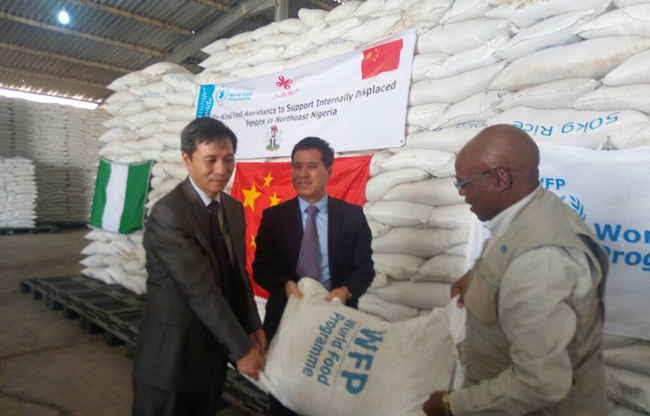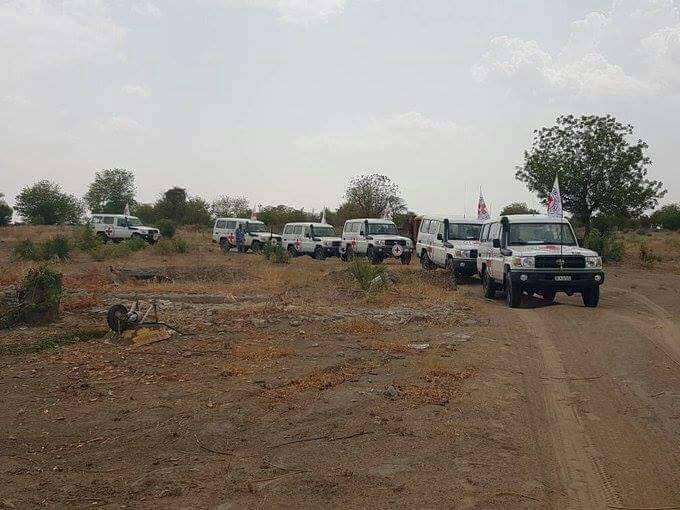Zhou Pingjian, Chinese ambassador to Nigeria, says his government has aided the World Food Programme (WFP) with $5 million to boost humanitarian support of the internally displaced persons (IDPs) in the north-east.
Speaking in Maiduguri, Borno state capital on Monday, Pingjian said his government also committed an additional $7.23 million worth of emergency food assistance for IDPs, which would last until June.
The ambassador said it was only natural for China to help its “Nigerian brothers especially when they are in severe situations.”
He said the two governments were currently working on the China-Nigeria agricultural cooperative.
Advertisement
“When emergency needs arise; then, help should come from all corners. This is a universal thing; Nigeria and China are very good friends, partners and brothers,” he said.
“’So it is only natural when China helps its Nigerian brothers especially when they are in severe situations. Today, we are here to collaborate with the World Food Programme (WFP) in its laudable efforts. By doing this, we want to send a strong message that the Chinese people and its government are always with their Nigerian brothers and sisters.
“This year, we have a lot of cooperation with Nigeria, especially in the area of infrastructure and agriculture. We are currently working on the China-Nigeria Agricultural Cooperative. By doing this, the Nigerian agricultural sector and other sectors will grow.
Advertisement
“We working with Nigeria to revolutionise the agricultural sector, whereby we eat what we grow and grow what we eat. We have also invited many Chinese investors to come and invest in Nigeria. The investment of China in Nigeria is increasing very fast and this means that the Nigerian economy will grow.”
On his part, Ronald Sibanda, the country representative of WFP, said the contribution of the Chinese government was timely because 1.1 million IDPs from Borno, Yobe and Adamawa states benefited from their assistance.
“Funding shortfalls had been our major challenge and this had forced WFP to deliver below-optimal rations and this is causing food-pipeline breaks that continue to constrain the scale up of WFP response as the lean season approaches,” Sibanda said.
“Also, the security situation remains fragile and unpredictable and access to some of the worst affected people remains a major concern.
Advertisement
“With the rainy season, which is expected to begin in May/June, many access roads may be impassable due to flooding. In May this year, WFP will be targeting 1.3 million people.”
Add a comment







